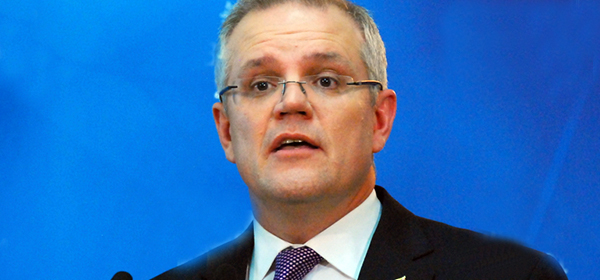The concept of good debt and bad debt is not new but should the Treasurer Scott Morrison’s sudden passionate differentiation between the two have us worried?
The Coalition has never been big on debt of any kind, preaching for years that a deficit is bad for the Budget and, in turn, bad for the economy. However, less than two weeks out from the Federal Budget 2017-18 Scott Morrison decided that good debt might not actually be so bad after all.
So what’s the difference between good debt and bad debt. Simply put, good debt is money borrowed to pay for projects such as national infrastructure programs and investment in industries that create jobs and keep the economy turning. Bad debt, on the other, hand tends to deliver no economic benefit.
It’s this good debt definition that Scott Morrison is relying on to get him out of what is likely to be a pretty bleak Budget, unless you’re a first home buyer that is. Everything is pointing to the economy slowing down. Commodity prices are falling, large building projects are coming to an end, wage growth is going backwards and the concern over rising household debt and an unsustainable housing market will undoubtedly lead to a tightening of household spending. Therefore, the Government has to look to some kind of ‘miracle’ to keep the economic wheels turning – hence the willingness to do a complete flip on the concept of good debt.
Good debt will be used to fund large-scale infrastructure projects that will, if chosen correctly, deliver a much-needed economic boost. However, there is a knack to choosing the correct projects – pink batts, school halls and the NBN projects were all worthy projects but poorly implemented and mismanaged.
Read more at ABC.net.au
One week out from the 2017-18 Federal Budget it’s clear that the Treasurer isn’t any closer to delivering a balance sheet for 2016-17 that will make anyone smile, in fact it’s likely to be worse than predicted just five months ago.
According to Deloitte Access Economics twice-yearly Budget Monitor, released today, stagnant wage and job growth has cut the revenue from personal income tax to the tune of $1.7 billion in 2016-17. This means that the budget deficit will be almost $2 billion worse than predicted at the end of last year.
However, a surge in commodity prices and low interest rates will deliver a small boost for 2017-18 to the tune of reducing the predicted deficit by $1.2 billion for the next financial year.
While everyone is expecting a financial boost from the mooted assistance for first homebuyers, the reality is if people can’t afford to pay their mortgage over the next 25 or 30 years, there’s not much point in buying a house.
Scott Morrison’s predecessor Joe Hockey, was much maligned when he made the statement that the first step to affording a home was to get a well-paying job. His delivery was definitely flawed, but the principal isn’t wrong, you just have to give people the opportunity by providing such jobs.
Spending big to stimulate growth isn’t a ground-breaking move, many countries do it. With interest rates at record lows, economists have been urging the Government to do just this for many years. It remains to be seen whether Scott Morrison will have the intestinal fortitude to announce a major infrastructure spending program while the country’s budget deficit continues to grow. But the need for action is clear and sometimes it’s better to be damned for doing something than ridiculed for not.
What do you think? Do you agree that there is both good debt and bad debt? Is a targeted program of infrastructure spending the best way to help the Budget and the economy? Or should we be reining in all spending?
Related articles:
Five Budget 2017 no-brainers
Retirement, housing & Budget 2017

